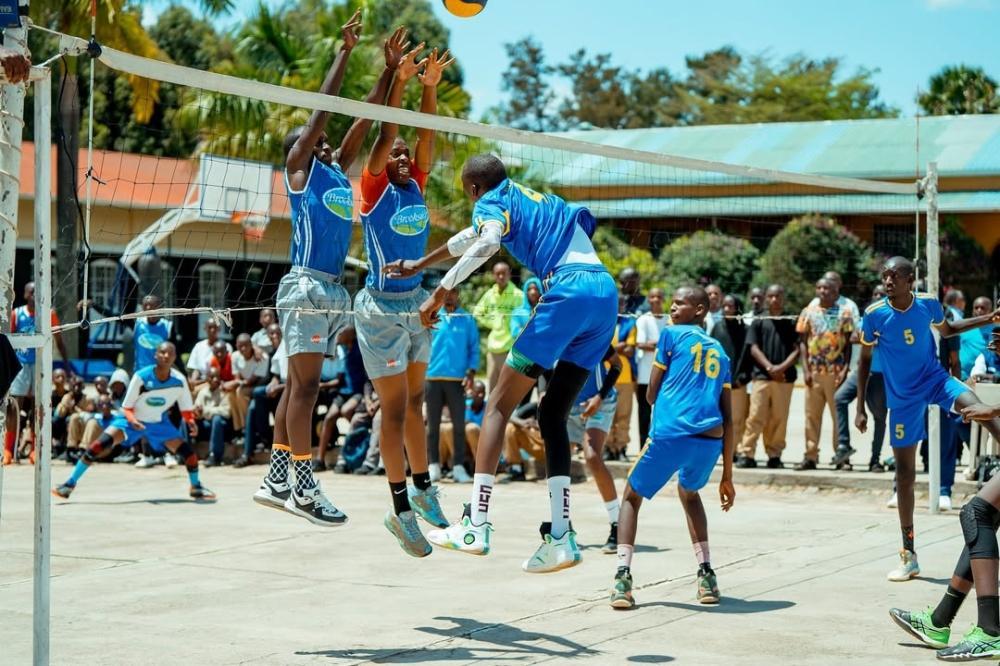Africa-Press – Rwanda. Rwanda’s volleyball league was once a breeding ground for talented male and female players particularly in 2019, when the nation made headlines after the women’s U20 team qualified for the 2021 FIVB Volleyball Women’s U20 World Championship held in Belgium and the Netherlands.
That historic milestone presented Rwanda’s potential to the global volleyball stage.
While the men’s national team never reached a similar level, some top players managed to break through internationally. Among them was Wicklif Dusenge, who joined Qatar’s Al Wakrah in 2022.
Before that, a few other players had opportunities to play abroad. However, after Rwanda’s appearance at the U20 World Championship, only Dusenge, Yves Mutabazi, and Valentine Munezero managed to secure professional contracts in foreign leagues.
The momentum that once excited local volleyball enthusiasts began to fade following the COVID-19 pandemic. Things went from bad to worse with Rwanda’s suspension by the International Volleyball Federation (FIVB) after being disqualified from the 2021 African Women’s Volleyball Championship for fielding ineligible players.
Although the domestic league eventually recovered, grassroots development took a step back regardless of its historical status as the foundation of talent pool for youngsters aspiring to become volleyball players.
Since 2022, Rwanda has not fielded a women’s U18 or U20 national team in any regional or international competitions.
On the men’s side, the situation hasn’t been much better. The U20 national team recently failed to qualify for the World Championship, while the U18 team, which competed in the 2023 tournament held in Sfax, Tunisia, finished the competition without securing a single win.
Rwanda’s volleyball once showed great promise but, with limited youth programs and fewer players turning professional, the question remains: Is the pipeline of Rwandan volleyball talent drying up?
Former Kepler coach Fidele Nyirimana thinks so.
“I think we’re lacking professional and dedicated coaches in schools where these talents are developed. In the past, schools like Saint Joseph and Groupe Officiel de Butare produced great players, but those who once volunteered as coaches now have families to take care of,” Nyirimana told Times Sport.
Grassroots coaches share a similar concern about the widening gap between the Division One league and the secondary school volleyball competitions. Many believe the solution lies in reviving the Inter-University Volleyball Tournament, which was last held before 2015.
“A lot of money is invested in our league right now, but teams like Kigali Volleyball Club (KVC) and Kirehe VC which used to nurture young talent are no longer intentionally developing new players,” one coach told Times Sport on condition of anonymity.
Where will the next gen come from?
While a host of players would introduce themselves to topflight volleyball after years playing inter-schools competitions and FESSSA Games.
However, it is hard to point where the next generation of volleyball players could come from.
APR captain Valentine Munezero said that more development programmes should be introduced to support AFD-Isonga, a development project launched the Ministry of Sports in partnership with Agence Francaise de Development, to help nurture talent of young players, especially girls.
“In our generation, everyone had hoped to reach the highest level. I was part of the squad that played at the World Cup. It was an amazing experience. But today, it’s hard to find new talents who can replace us. That’s worrying for the future,” Munezero said.
Munezero emphasized the need for stronger investment in talent detection particularly in communities where young players live and play.
“There must be more focus on identifying and supporting young talent through competitions. Otherwise, we’ll keep depending on foreign players to make our league exciting yet, sadly, there won’t be any outstanding Rwandan players contributing to that success,” she said.
For More News And Analysis About Rwanda Follow Africa-Press






